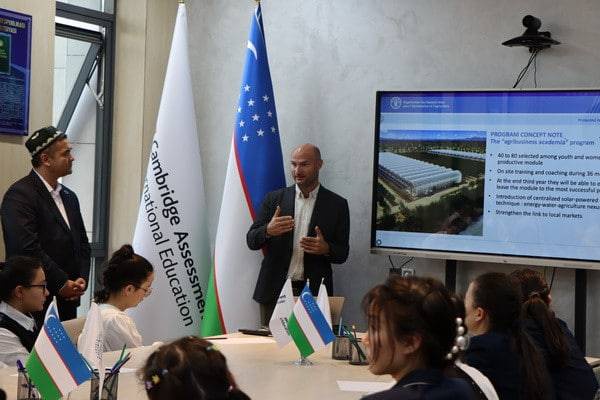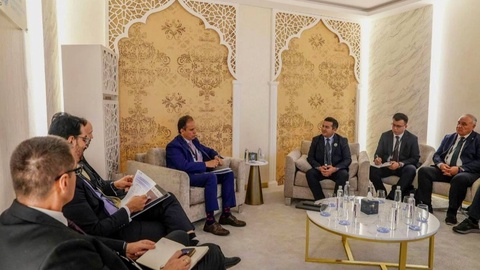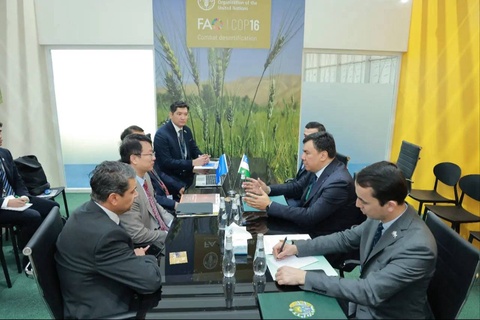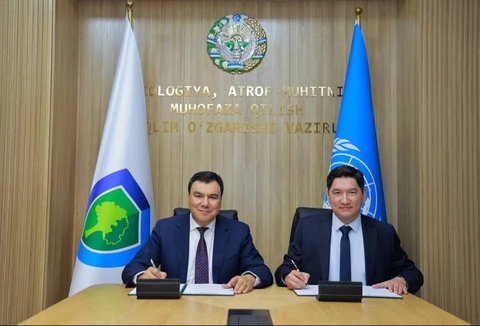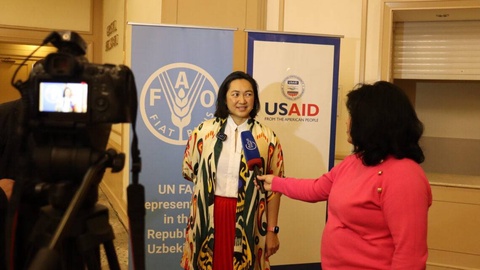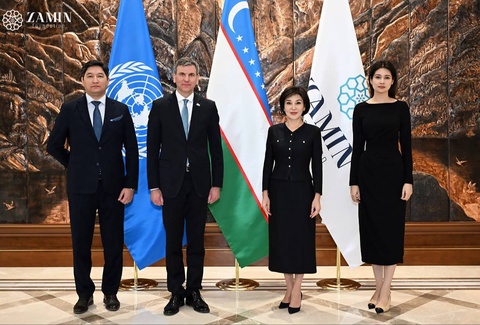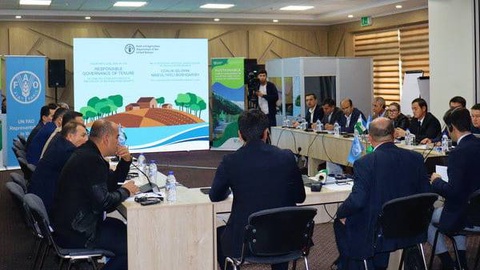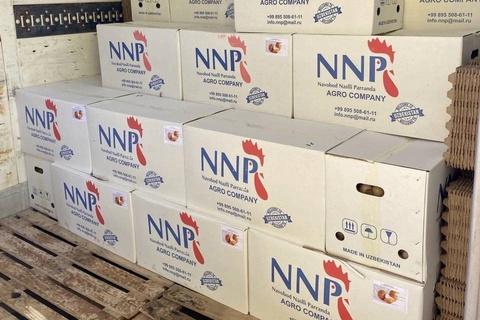The event was organized by FAO together with the Agency of Presidential Educational Institutions.
The topic of the classes is "The use of innovations and new digital technologies in agriculture for the sustainable development of agricultural products". About 40 students from grades 9-11 took part in the training seminar.
The guys showed keen interest in the presentation of a foreign expert who told about innovations in agriculture - the most important industry in which about 1 billion economically active people of the world are employed today.
In particular, the expert introduced the students to the methods of hydroponics and aeroponics, the features of the so-called "vertical farming" - a technology that is being actively implemented all over the world and allows using 95% less water than a traditional farm.
In addition, the advantages of a new generation of solar-powered water pumps, the use of IT technologies in greenhouses and much more were considered.
As you know, in presidential schools, for admission to which it is necessary to pass a strict selection, a multidisciplinary educational environment is formed that promotes the disclosure of the intellectual abilities of the younger generation. In this regard, classes in agriculture have proved useful for expanding the horizons of students.
"Natural and exact sciences, foreign languages, engineering and information and communication technologies are studied in depth at our school," said Shukhrat Aziboev, director of the Presidential School of Namangan. - Thanks to the training conducted in cooperation with FAO, some of the students have already started thinking about a career in agriculture, are interested in how to implement IT technologies in the agricultural sector. Such trainings are important for the professional orientation of students, the development of advanced foreign experience and the latest trends."
The knowledge gained during the training on greenhouse management can be immediately put into practice - after all, there is a greenhouse on the territory of the school, in which practical classes are held. The greenhouse was built and transferred to the school on a grant basis from the FAO as part of the implementation of the Zamin Eco-Education program of the Zamin International Public Foundation. To date, it has already grown greens and some agricultural crops with the active participation of schoolchildren.
Environmental education within the framework of this program is an important factor for increasing the responsibility of the younger generation for the rational use of natural resources. This is how the ecological culture of society is ultimately formed.


